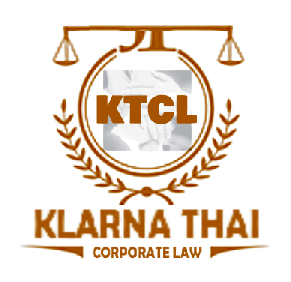
Litigation
Klarna Thai Corporate Law
Klarna Thai Corporate Law
CALL US TODAY FOR A FREE CONSULTATION
+66 92 565 3522
+66 92 565 3522
MON - FRI
Opening hours 8:30am - 5:30pm
Opening hours 8:30am - 5:30pm
-
-
Labour Case
-
Labour Case
Who are the governing bodies that protect the rights of the employees under the Thai Labor Act?
In Thailand the legal rights of the workers or employees are covered by several labor legislations, among of which predominantly are the Labor Protection Act BE 2541. In the branches of the matter includes in some cases the Labor Relation Act, the Social Security Act, the Provident Fund Act, Workmen’s compensation Act, and the Alien Working Act of 2008 that covers with foreigners working in Thailand. Administering the laws and the rights with regard to labor issues are all directly under the jurisdiction of The Ministry of Labor and Social Welfare via Department of Labor Protection and Welfare
What are the employees’ rights under these laws?
Labor Protection Act BE 2541, the above laws enumerate the employees’ limited rights such as;
-
Allowable Vacations, Sick Leaves and Holidays
-
Compensation
-
Privileges
-
Welfare Funding
-
Working Hours
-
Workmen Securities
-
Work Restrictions
Labor Protection Act BE 2541 also provide the grounds for the dismissal/termination of employees, including the provision of severance compensation of employees.
How can a worker be entitled for a severance pay?
Any violation on the guidelines provided by law is a cause for the worker to file a labor case against his/her employer. However, the most common case brought before the labor authorities is illegal dismissal or unlawful termination. Complaints regarding this matter should first be resolve through a diplomatic settlement between the employee and the employer with the assistance of a lawyer. If the settlement of the issue is impossible to be made provided with some probable cause against the offending party only then it may be recommended to file an appropriate labor lawsuit.
Severance Pay under (Section 118) of the Labor Protection Act.
Written under this section if an employee has been (illegally dismissed or unlawfully been terminated) by an employer. The employer shall pay Severance Pay to an Employee who is terminated as follows;
If the employee has worked for an uninterrupted period of 120 days but less than 1 year, he/she shall be entitled to receive payment of not less than his/her last rate of wage for 30 days or of not less than his/her wages for the last 30 days for employee who receive wages on a fixed rate basis.
If the employee has worked for an interrupted period of 1 year but less than 3 years, he/she shall be entitled to receive payment of not less than his/her last rate of wage for 90 days or of not less than his/her wages for the last 90 days for employee who receives wages on a fixed rate basis.
If the employee has worked for an interrupted period of 3 years but less than 6 years, he/she shall be entitled to receive payment of not less than his/her last rate of wage for 180 days or of not less than his/her wages for the last 180 days for an employee who receives wages on a fixed rate basis.
If the employee has worked for an interrupted period of 6 years but less than 10 years, he/she shall be entitled to receive payment of not less than his/her last rate of wage for 240 days or of not less than his/her wages for the last 240 days for an employee who receives wages on a fixed rate basis.
If the employee has worked for an interrupted period of 10 years or more, he/she shall be entitled to receive payment of not less than his/her last rate of wage for 300 days or of not less than his/her wages for the last 300 days for an employee who receives wages on a fixed rate basis.
What are the exemptions of the Employer to refuse in paying the severance pay?
Claims for Severance Pay has its exemptions according to the Labor Protection Act made clear under (Section 119) wherein it states that an employer may refuse to give a severance pay to an employee when the employment is terminated upon any of the following conditions;
-
Performing his/her duty dishonestly or deliberately committing an offence against the Employer
-
Willfully causing damage to the Employer
-
Committing negligent acts that is causing serious damage to the Employer
-
Violating work rule, regulation or order of the Employer which is lawful and just, provided with written warnings issued upon.
-
Absences from duty without justifiable reason for three consecutive working days regardless of holidays in between.
-
being sentenced to imprisonment by a final court judgment.


